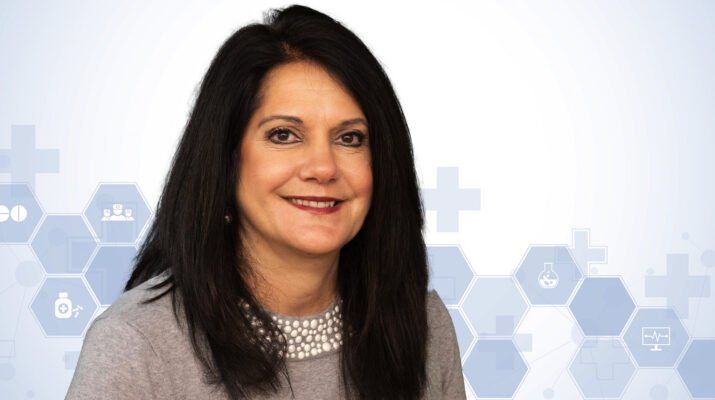Chief clinical officer at Hospice & Palliative Care Inc. talks about how hospice helps end-of-life patients and their families
by David L. Podos
Q: What was your previous work with hospice before becoming chief clinical officer?
A: I came to hospice in 2014 and while in that position I was a primary care nurse seeing patients. A few years after I was promoted to clinical supervisor and from there I moved up to chief clinical officer.
Q: How many years do you have in nursing and where else did you practice?
A: I have 10 years’ experience as a practicing nurse; prior to coming here I worked at Faxton Hospital as a dialysis nurse.
Q: I think that many people in the community have a misconception about hospice when they hear the words hospice palliative care. There also might be some confusion on exactly what services you provide, what the criteria is to receive those services, etc., do you agree?
A: Yes, I agree. Let’s start off first with what we do. We go into the homes and facilities of patients who are at the end of life. End of life means they must have a terminal diagnosis of six months or less to live. At that point we go in and provide comfort and care. We go into nursing homes, DDSO homes, [Developmental Disability Services Organization] and private homes. Most of our patients are living in their own private homes.
We use a team approach when providing services utilizing a registered nurse, a social worker, a chaplain and volunteers. This is our whole team approach which we use with every patient we care for. We basically take over from the patient’s primary care provider, (physician). We do however send their physician a weekly report on how they are doing, so we do keep some communication open with the doctor.
Q: You mentioned that most of your patients live in their own homes. Does hospice provide any services here at your New Hartford site?
A: Yes, we do have a residential center for patients. It is called the Siegenthaler Center which provides a four-bedroom unit for patients to stay here.
Q: Let’s return to my earlier question regarding misconceptions about hospice care. What specifically are they?
A: The first misconception is, when a family member calls us for help or the patient themselves inquiries about getting help, I feel when that happens the family or the patient believes they are giving up hope. What they oftentimes do not realize is, by us coming in to help them we are actually giving them a better quality of life. We are not giving up hope. We go in and make sure we know what their wishes are. How do you want your remaining time to go? They may say I want to make it to Christmas, if I know at that point of time that they will not make it to Christmas then we will have Christmas for them in July. Another example, a patient says I haven’t seen my son in a very long time and I really want to talk to him; we make that happen.
Another misconception is the medications that we bring into the home, such as morphine. The family thinks, OK, I am going to give my loved one morphine and they are going to die. That’s a misconception; we use the morphine for shortness of breath as well as for pain management.
Q: Have you ever had someone, who is under your care, that suddenly has what might be called a spontaneous remission and if so, what do you do?
A: Great question. Yes, it has happened. And at that point we continue to monitor the patient. If this “rally” continues we of course talk with the family and tell them we most likely will discharge the patient from hospice care, as most of our patients are funded by Medicare and we as a hospice facility have to adhere to their guidelines.
Unfortunately, the numbers on what might be considered a remission are very low. We discharge only two to three patients per year if that situation develops.
Q: I am sure that there is a great emotional burden to family members to see their loved ones go through end stage of life. Does hospice have an impact on helping to alleviate at least some of this burden?
A: Absolutely! We have a spiritual coordinator that goes in talks to the patient, but also talks and spends time with family members. Our spiritual coordinator works with all faiths as well. Social workers go in and help with any family member that needs to take a leave. They support and help with all the paperwork and provide any assistance, so this takes a whole lot of anxiety and burden off any family member who needs a break. We are also available (on call) 24 hours a day, seven days a week to assist.
Hospice and Palliative Care Inc.
Call 315-735-6484
Visit https://hospicecareinc.org.

